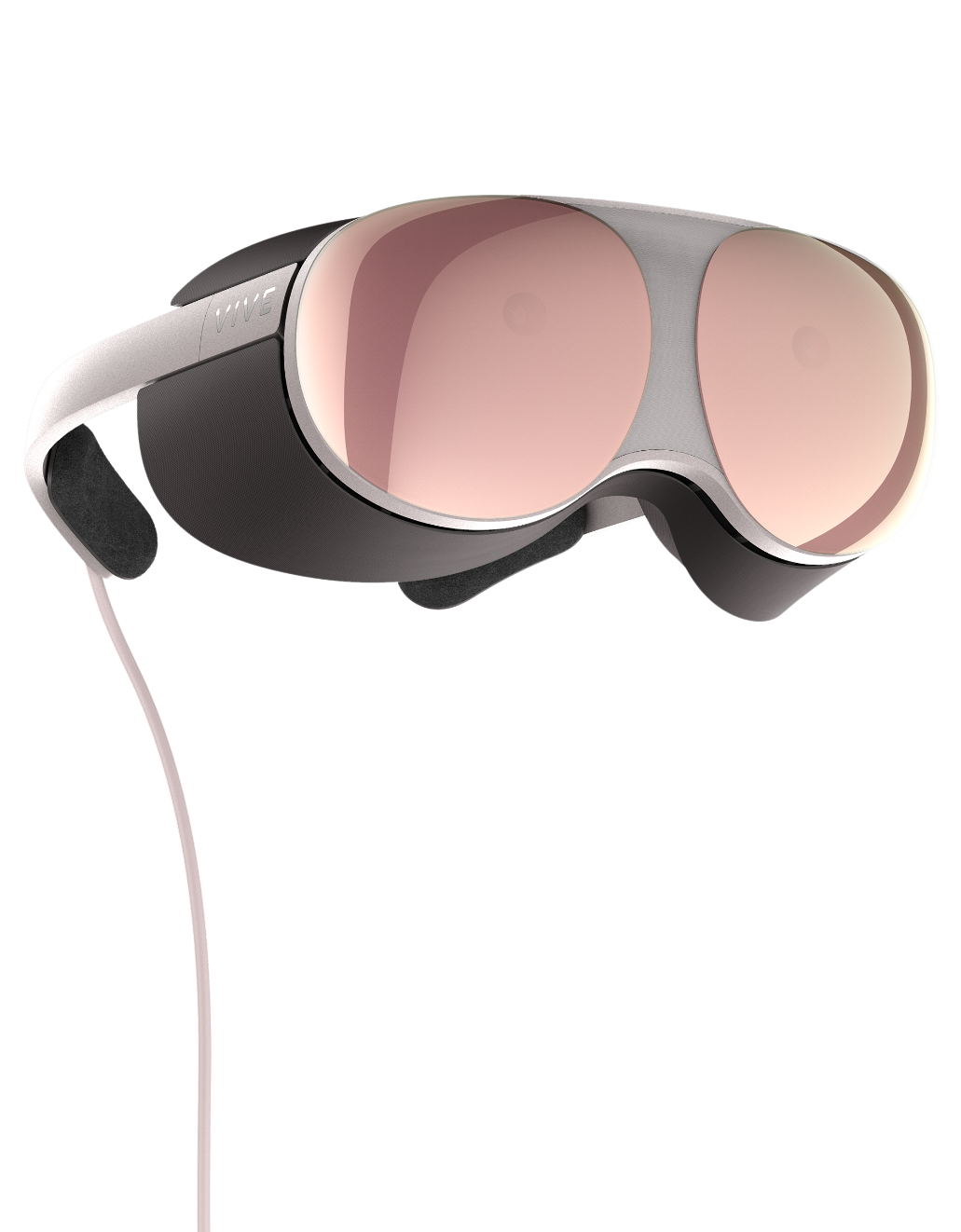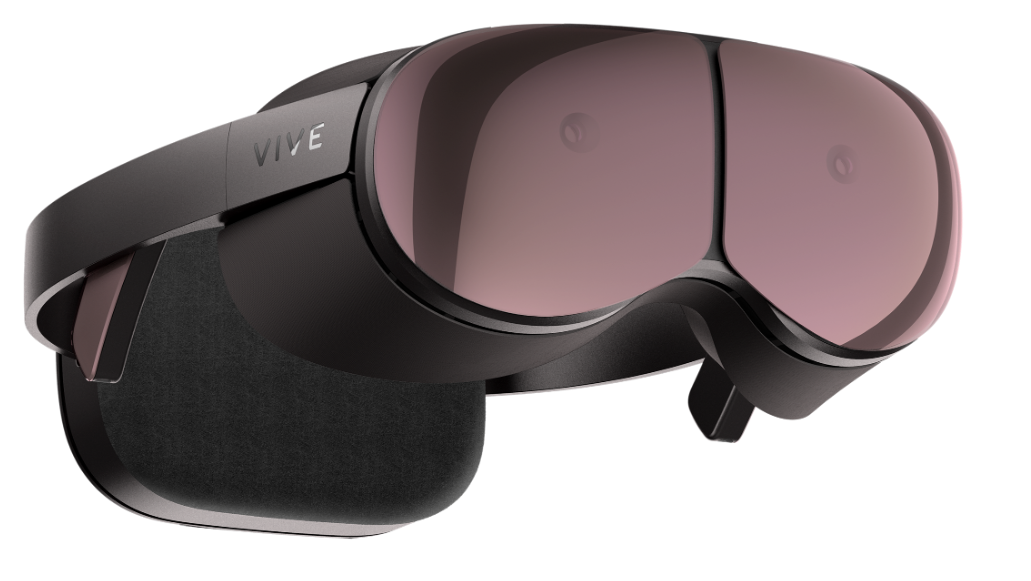HTC Vive’s Project Photon Prototype Is Rose Gold-Colored Smart Glasses
HTC Vive’s toying around with smart glasses that can combine augmented and virtual reality and have an interesting hue.
Who doesn’t want to view the world through rose-colored lenses? As the saying goes, everything just looks and feels better. Virtual reality (VR) headset maker HTC Vive is seemingly going for an optimistic approach to the smart glasses market with Project Photon, a prototype for smart glasses that bank on 5G and striking lenses with a rose gold hue.
At Mobile World Congress, which was supposed to occur from February 24-27 but was cancelled due to the coronavirus outbreak, HTC Vive was going to show off a working smart glasses prototype, Dan O’Brien, general manager of North America for HTC Vive, told Tom’s Hardware. O’Brien said that HTC Vive eventually sees such a product landing in the hands (or on the eyes) of individual tech enthusiasts. However, the vendor wouldn’t specify whether that prototype was going to be showing off enterprise-focused or consumer apps.
HTC Vive wouldn’t share any specifications but did share a couple photos of Project Photon. There’s the rose gold palette and a darker purple that almost look like sunglasses if it weren’t for their chunky builds, the cable in one design and the headstrap in another. Either design would cause head turns, unlike the more stealthy North Focals augmented reality (AR) smart glasses.
The smart glass market is in its infancy. Depending on who you ask, the market will grow at a CAGR of 15.2% through 2025 or 2026. But regardless of which report you look at, growth is largely stemming from enterprises. You’d be hard pressed to find a group of people wearing Focals or the Vuzix Blade AR glasses; The apps and use cases haven’t yet become appealing enough to warrant the price or the implications of wearing a computing device on your face.
But that isn’t stopping HTC Vive from playing around with the idea or XR smart glasses, which combine VR and AR capabilities and applications. HTC Vive already has some of the best VR headsets, including for at-home gaming.
However, HTC Vive sees the industry’s enterprise-focused growth. O’Brien believes that smart glasses will first pick up steam in the workplace, leading those who use them on the job to want them in their daily lives.
HTC Vive is also seeing greater possibilities enabled by 5G networks.
Get Tom's Hardware's best news and in-depth reviews, straight to your inbox.
“In order to remove those friction points, you need a lighter headset. You need more comfortable headsets that can transition between AR and VR and MR and also work with a distributed network and with a 5G network,” O’ Brien said.
The Focals and Blade AR smart glasses both wirelessly pair to a smartphone, while the upcoming Nreal Light MR glasses connect to an smartphone (Android only) via a cable. O’Brien sees Project Photon connecting to some sort of a “modem,” which he said could be a smartphone, mobile hotspot or a smaller device that can speak to a 5G network. It could even be something serving as a “virtual smartphone,” the exec noted.
We’ll look forward to seeing how HTC Vive evolves Project Photon over time and if it ever actually goes to market with these rosy specs.

Scharon Harding has over a decade of experience reporting on technology with a special affinity for gaming peripherals (especially monitors), laptops, and virtual reality. Previously, she covered business technology, including hardware, software, cyber security, cloud, and other IT happenings, at Channelnomics, with bylines at CRN UK.

